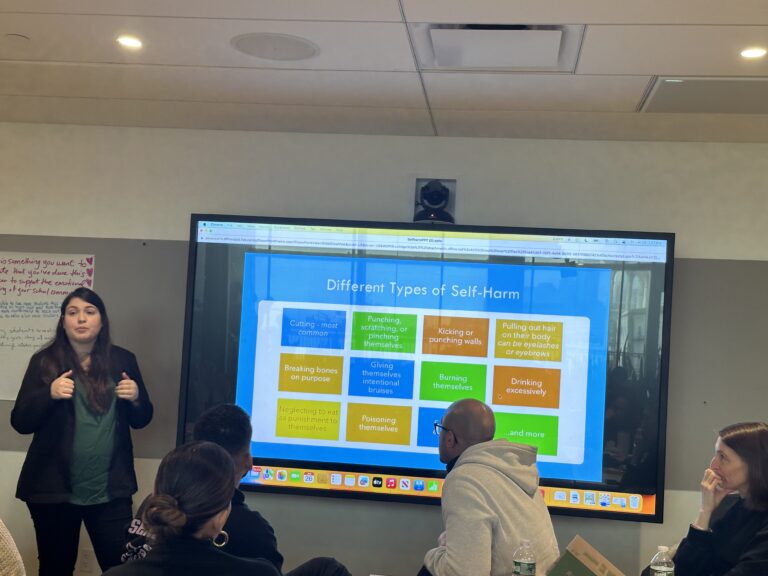Domestic violence is one of the most traumatizing events a child can experience, and each year 3.3 million children witness domestic violence assaults. They are domestic violence’s hidden victims. Unable to turn to their parents for help, these children often struggle in silence, alone with their fear and trauma.
 But if we are alert to the signs of this trauma in children, we can help ensure their safety and help them recover. The Child Center responded to over 1000 domestic violence cases last year in which children’s safety was threatened. When children live in a domestic violence situation, they are at high risk for both emotional and physical harm, including injury from thrown objects or when a child intervenes to protect the abused parent. Adequate safety planning can keep children safe.
But if we are alert to the signs of this trauma in children, we can help ensure their safety and help them recover. The Child Center responded to over 1000 domestic violence cases last year in which children’s safety was threatened. When children live in a domestic violence situation, they are at high risk for both emotional and physical harm, including injury from thrown objects or when a child intervenes to protect the abused parent. Adequate safety planning can keep children safe.
To help identify children who might be suffering from trauma, here are some common behaviors and ways to help.
Newborns and toddlers: Even newborns and toddlers can feel the stress in their environment and have sleep and eating disturbances. Children under five can be fearful or uncertain as they respond to their environment, and they may throw tantrums or mimic the abuser’s behaviors. Nervous habits can also begin around this time, such as thumb sucking or rocking.
How to help: Parents and caregivers can help by helping the child to name his feelings, give all of the empathy and reassurance they can, and keep the children close to their family support system. It’s also important to give children choices so they know that they still have a measure of control over their own lives. Continue reading →
 By Yolanda Vega, LMSW
By Yolanda Vega, LMSW






You must be logged in to post a comment.